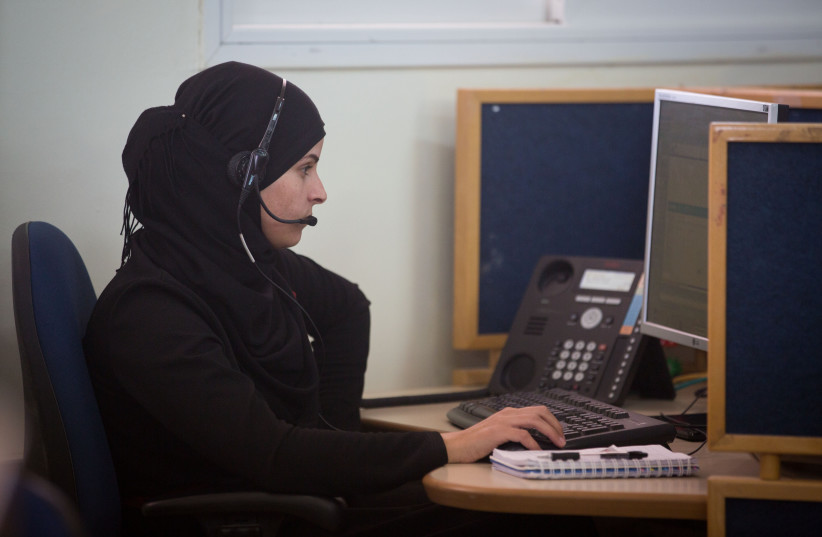Some 58.2% of married or previously married women in the Palestinian territories have been subjected to some form of violence “at least once” by their spouses, according to 2022 data from the Palestinian Central Bureau of Statistics.
For more stories from The Media Line go to themedialine.org
In fact, the actual number of victims is much higher, most notably in the coastal enclave of Gaza. Yet the reluctance of women experiencing violence to report it makes the accuracy of the data questionable
"Not feeling safe when going directly to protection services providers, not knowing the right direction to go, and the fear of societal judgment and the fear of the perpetrator himself is what makes battered women remain silent about what they are going through," Kholoud Al-Sawalmeh, project manager at the Gaza-based Community Media Center (CMC), told The Media Line, noting that the situation has gotten worse during the COVID-19 pandemic.
"As the pace of gender-based violence against women continued to spike in the Gaza Strip, which sometimes amounted to murder, we [in the CMC] thought of finding digital solutions that would contribute to alleviating the suffering of battered women and helping them to access care centers safely and anonymously," she said.
A couple of months ago, the CMC launched the Masahatuna, or Our Spaces, phone app that allows women to report domestic abuse without disclosing their identity and without leaving evidence on their phone that they have sought help.

One of the female engineers who programmed the app, Alaa Huthut, told The Media Line that the application "is designed in a way that makes it easy to use by women of different backgrounds without giving their names or leaving a trace of their contacts with care centers on their own phones." She added that it includes a variety of health, legal, psychological and shelter services provided by institutions available on the application database.
Huthut also said that "the application offers a range of helpful advice and awareness articles about women's rights, as well as reviews success stories and experiences of battered women and survivors of violence in order to help other victims overcome their trauma."
So far, "more than 450 women have downloaded the app, including the 175 that contacted 13 different service providers in Gaza,” according to Al-Sawalmeh. She confirmed that, before putting it online, the app underwent thorough testing at the internal and the local institutional levels and it showed significant results.
One of the women who used the app, according to Al-Sawalmeh, was subjected to domestic violence that seriously threatened her life until she finally decided to stand up for herself and contacted The Women’s Affairs Center in Gaza to seek help.
Salma Al-Swerki, a case officer at the Women’s Affairs Center, told The Media Line that there has been a 30% increase in the number of reports of violence received by the center due to this app.
Despite the strenuous efforts to raise women’s awareness about their rights and means of protection, the strict norms and traditions of the conservative society are still the biggest obstacles to achieving remarkable progress for women.
"Under the cover of unfair traditions that control the entire society, restricting the movement of women and their freedom to speak or defend themselves against being abused is adding an extra burden on victims who probably would prefer to receive violence silently," Al-Sawalmeh concluded.
Eman, a false name to protect her identity, is a 49-year-old wife and mother of five who lives a tragic life with a violent drug-addicted husband. She has not used the Masahatuna app because she does not believe it will help her. This is because she has already turned directly to the authorities, who merely returned her to her home with no protection.
"I have asked for help hundreds of times from my family, neighbors, and even the authorities, but every time it ends with me being sent back to my home with promises that everything will be ok. I am afraid that one day my children will see me getting killed in front of them,” she told The Media Line.
